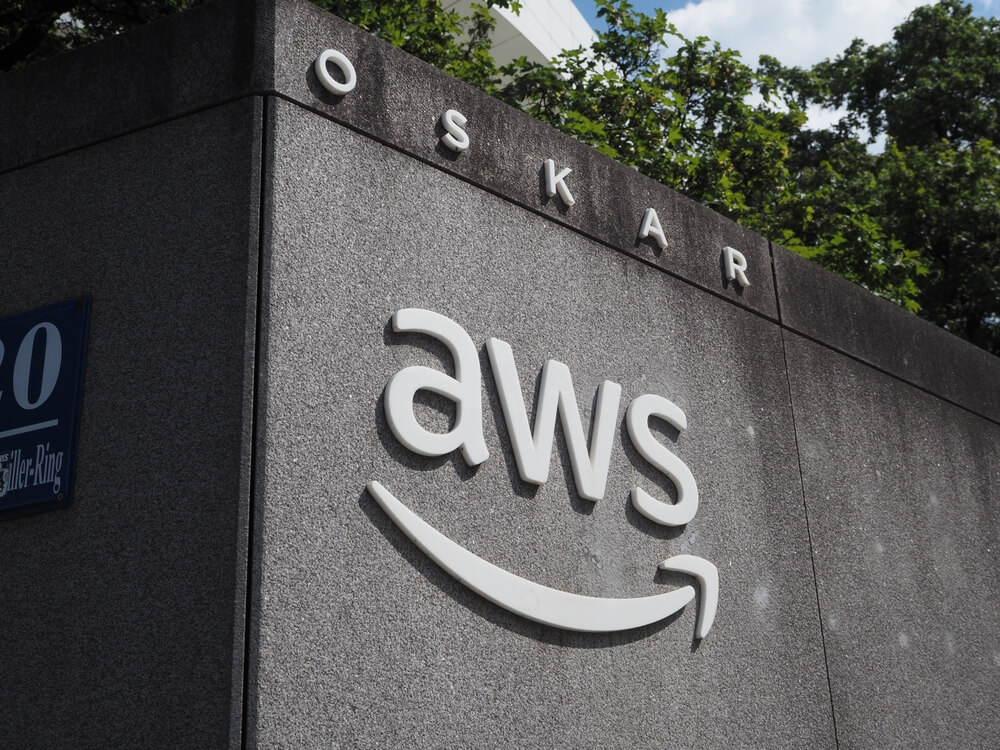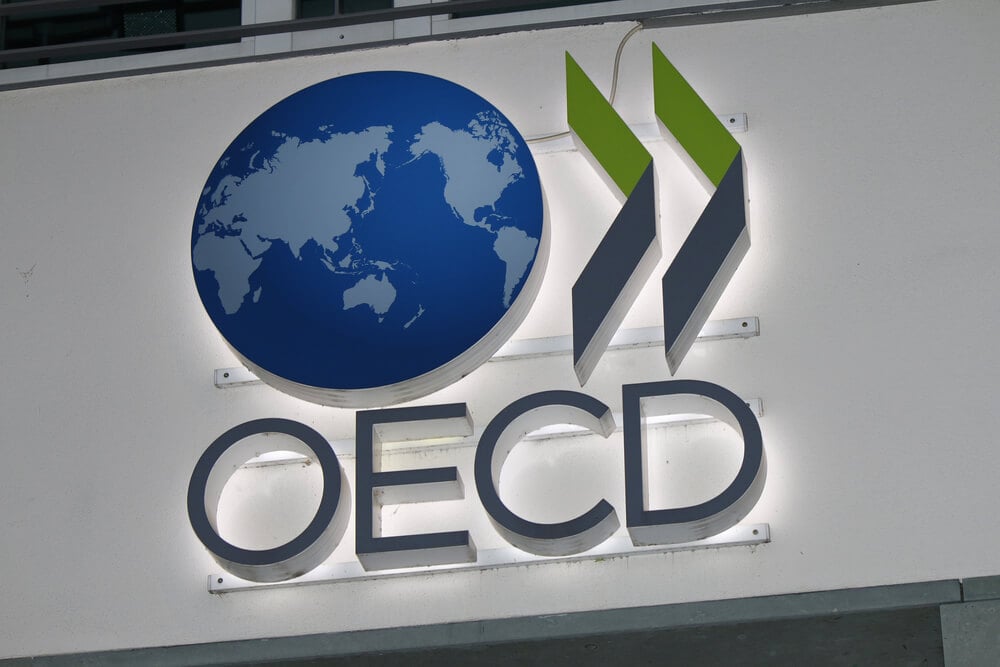They are not accountable to voters; they are not subject to democratic control, but they have resources, infrastructure, and influence that surpass most nation-states.
In the second half of the 20th century, nations were the main players in global politics. Today, in the third decade of the 21st century, it is becoming increasingly clear that private corporations are taking over the role of transnational powers.
If power is defined as the ability to shape the world according to one's own will, the question is not whether companies are powerful but what it means for the future of the global order.
Corporations have become economic giants whose power can be measured in terms of national GDP.
Apple's market capitalisation, for example, was around USD 2.96 trillion, according to Yahoo Finance. This is more than the GDP of countries such as Italy (USD 2 trillion) or Canada (USD 1.9 trillion), according to forecasts for 2025.
And what can we say about BlackRock, which manages assets totalling USD 11.5 trillion? Amazon dominates the e-commerce market in the US with a 38% share and covers 21 countries with a logistics network of over 1,100 aircraft and tens of thousands of trucks, according to Statista.
Google holds key control over the digital space (StatCounter), with over 50 trillion pages indexed per day and its dominance in search, operating systems (Android), and video platforms (YouTube).
Microsoft holds almost a third of the global cloud technology market with its Azure Cloud Services.
Infrastructural powers
These companies are no longer "just companies". They are infrastructural powers. Their power is based not only on economic considerations but also on their ability to set the rules of the game.
Through tax regulations, lobbying networks and strategic investments, they often surpass even regulatory authorities. Governments have to negotiate with them as entities with their own foreign policy. And these policies are not always compatible with the public interest.
When Australia tried to force Meta and Google to pay media outlets for content use in 2021, the response was clear: temporarily blocking access to news on Facebook. It was a demonstration of raw power.
Technology companies are playing a double game: promoting liberal values in the West while caving in to authoritarian demands for access in other markets
Companies are no longer just lobbying in Washington and Brussels – they are now directly influencing legislative processes wherever they operate.
In China, Apple and Tesla are making compromises with the state that include local censorship practices and partnerships with government-controlled companies.
Apple has repeatedly removed VPN apps and privacy services from the App Store in the Chinese market. In India, Twitter (now X) has been forced to remove content at the government's request or risk closure — while promoting freedom of expression in the US.
Technology companies are playing a double game: promoting liberal values in the West while caving in to authoritarian demands for access in other markets.
Ethical dilemmas
This dynamic has intensified in recent years. In 2024, Microsoft faced internal protests for providing artificial intelligence to the Israeli military during the Gaza conflict.
Employees launched a "No Azure for Apartheid" campaign, and the company responded with dismissals.
In 2025, Alphabet (Google) quietly rescinded previous ethical guidelines that prohibited the use of artificial intelligence for military purposes, paving the way for active collaboration with the US Department of Defence.
Meta has been accused of using algorithms to favour political narratives close to Donald Trump, which has caused concern among European leaders.
Artificial general intelligence (AGI) could be developed by 2030 - Demis Hassabis
Amazon was labelled in a report by the International Trade Union Confederation (ITUC) as a corporation that financially undermines democratic institutions through tax aggression (the company uses all kinds of legal but morally questionable ways to pay as little tax as possible—often in countries where it generates large revenues) and political lobbying.
At the same time, the CEO of Google DeepMind, Demis Hassabis, announced in an interview with Time on 16 April that artificial general intelligence (AGI) could be developed by 2030—raising concerns that future AGI systems could be incorporated into military doctrine without international oversight.
Actors in wars
Today, SpaceX not only offers commercial flights into orbit. Its network of Starlink satellites also serves as an important communications infrastructure in Ukraine.
In March 2024, the Ukrainian military publicly thanked SpaceX for providing uninterrupted communications to over 1,200 locations along the front lines.
 Amazon Web Services hosts the servers of the Central Intelligence Agency (CIA) and dozens of government agencies
Amazon Web Services hosts the servers of the Central Intelligence Agency (CIA) and dozens of government agencies
Palantir develops software for the US military, NATO and other allies — including systems for predicting battle outcomes. Amazon Web Services hosts the servers of the Central Intelligence Agency (CIA) and dozens of government agencies, while Google Cloud provides the US Department of Defence with artificial intelligence to analyse satellite imagery.
Companies that began as start-ups are now actors in wars, security operations, and national strategies.
This raises a serious question of responsibility: Who decides how and when to deploy such technologies? If a corporation decides to provide a service to a party to a conflict, is that a form of intervention? Is there a control mechanism? At the moment — no!
Does sovereignty exist?
States are legally bound by international agreements, the Charter of the United Nations (UN), and obligations to citizens. Corporations are not. Their goals are defined solely by the value they provide to the owners (shareholders). Their "citizens" are the users, but the users have no say.
When Google cancels the service in a particular country, it is not a political decision — it is a business decision. However, the consequences are political.
Companies like Meta, TikTok and Amazon have more users than many countries have inhabitants
Companies like Meta, TikTok and Amazon have more users than many countries have inhabitants. TikTok has over 1.5 billion active users—more than the entire African continent's population.
If an engineer changes YouTube's algorithm, it can influence the opinions of hundreds of millions of people in real time. This is not abstract power, but real, measurable control over perception, behaviour and emotions.
This raises the question: What does sovereignty mean in a world where nations no longer control the key infrastructures used by their citizens? If servers, communication, energy, and financial resources are in the hands of private actors, where are the limits of state power?
Governments are becoming secondary players
If the trend continues, a scenario is possible in which governments become secondary players to technology and financial corporations. The alternative is to redefine the role of public institutions. This includes new regulations, global tax treaties, rules for algorithmic transparency and digital sovereignty.
The United Nations (UN), the World Trade Organisation (WTO), the International Monetary Fund (IMF), and others would have to recognise the private sector not only as an economic actor but also as a political one.
Not for ideological reasons, but because real power today is no longer tied to territory alone, but to networks, data and control over information.
Perhaps it is time for the world to have a new kind of order: one in which the boundaries of responsibility shift from the boundaries of states to the boundaries of power. Because if corporations behave like states, someone has to treat them as such.
 The OECD proposes an effective minimum tax rate of 15% for companies with a turnover exceeding EUR 750 million
The OECD proposes an effective minimum tax rate of 15% for companies with a turnover exceeding EUR 750 million
If nothing changes, we can expect this to happen in the next 10 years:
Digital enclaves: tech companies with their own networks, currencies (like Meta tried with Diem – a digital currency project that was supposed to operate globally outside the control of central banks but met strong resistance from regulators and was abandoned for now), moderation rules and internal courts. Users move from one digital jurisdiction to another — without any connection to real countries.
Techno-neutrality: companies decide when they are "neutral" and when they interfere — in wars, political crises, and economic sanctions. They are not subject to international law, but they have the effective power to topple or prop up regimes.
The collapse of public services: states lose access to data, tools and artificial intelligence that they did not develop themselves. Schools, hospitals, and other institutions are becoming increasingly dependent on paid services from the private sector.
Algorithmic geopolitics: instead of ambassadors, influence is achieved through algorithmic recommendations, digital campaigns and the selective availability of information. Power is measured by clicks, dwell time and user behaviour.
What are the possible counter-strategies, i.e., what can and must states do?
Digital sovereignty: investing in their own cloud infrastructure, independent operating systems and national centres for artificial intelligence (AI).
Tax reset: the introduction of a global minimum tax on the profits of multinational companies, as proposed by the Organisation for Economic Co-operation and Development (OECD). The OECD's "Pillar Two" proposes an effective minimum tax rate of 15% for companies with a turnover exceeding EUR 750 million, aiming to halt the downward tax competition trend and minimise the transfer of profits to tax havens.
Market access rules: companies operating in a country must comply with local laws on data, privacy and expression — with no exceptions.
Algorithmic transparency: obligation to disclose the criteria for moderation, recommendations and advertising. Algorithms must not be black boxes that shape reality without control.
Digital citizens' contract: Users must have rights — not only as consumers but also as digital citizens. This encompasses the entitlement to information, access, and protection from manipulation.
Because not only the balance of power is at stake, but also the fundamental structure of the future world. If states are too late, the next generation may live in a world where no decisions of public importance are made by public institutions.